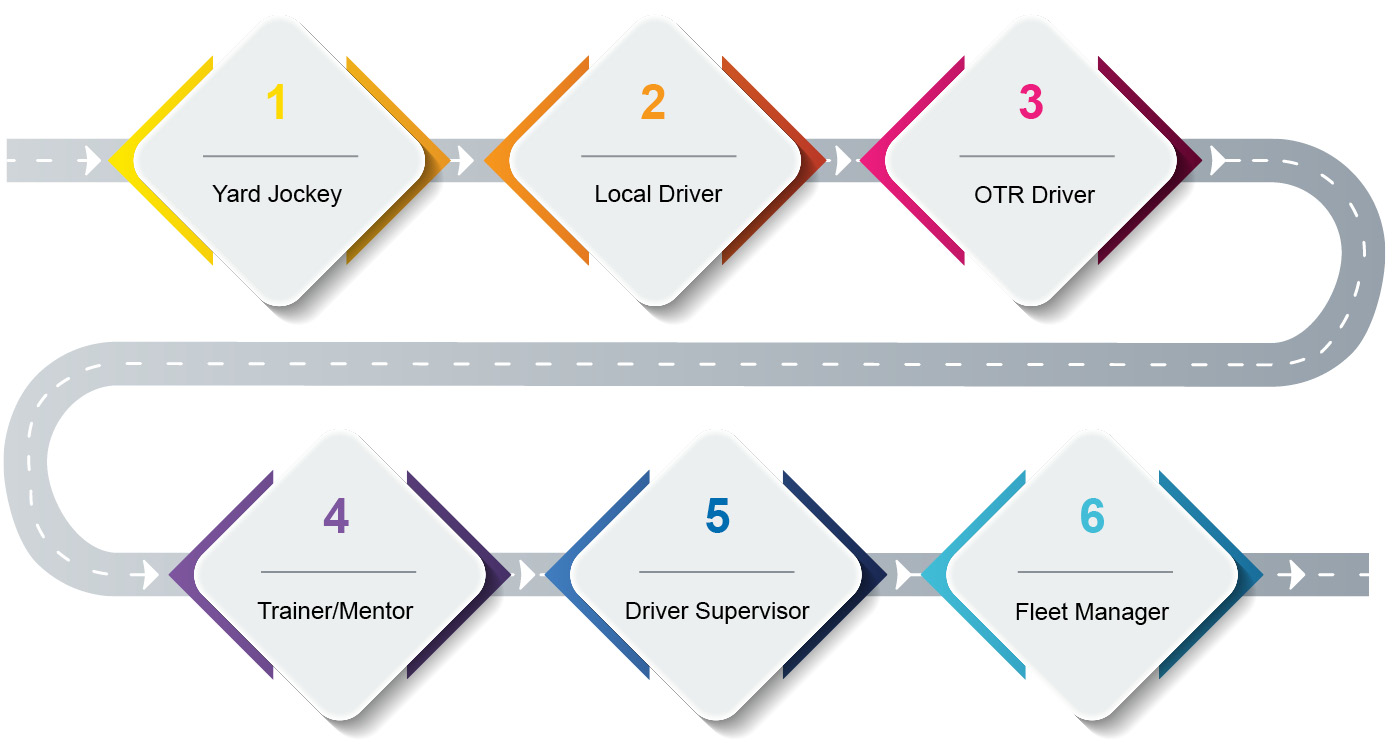
Adapting to ever-changing business conditions is nothing new for motor carriers. Staffing, in particular, has been exceedingly difficult in recent years and not just from a driver shortage standpoint. The “Great Resignation” has hit every industry as workers across the nation have stepped back to re-evaluate their careers, reset their work-life balance, and establish new personal goals.
In response to this turnover, employers have been forced to get creative in their efforts to fill job openings and address skill gaps that have resulted from the loss of high performers. For this reason, having your human resources department define career paths is important.
Career paths provide employees with a road map for enhancing their knowledge, skills, and abilities as they pursue their career goals. Here is an example of a career path for drivers.
Motor carriers must always keep an eye on the future. The trucking industry is constantly evolving; this evolution affects operations and requires new skills to adapt and stay competitive.
A good example of this is the introduction of new technologies, such as electronic logging devices (ELDs). This federally mandated change not only forced motor carriers to buy new technology for every truck, but also required employers to train their drivers, dispatchers, mechanics, and office staff on how to use and maintain these devices. The impact was significant both financially and operationally.
As recruiting has increased, employers have resorted to recruiting talent from outside the company who already possess the required knowledge, skills, and abilities; investing in upskilling or reskilling tenured employees to close those performance gaps, or both. However, this is only part of the staffing problem facing employers.
While weighing current and future needs, it is important for motor carriers to recognize that staff turnover may be less about earning potential and more about culture. One negative culture trait that can impact employee retention involves a lack of opportunities for employees to grow and advance within the organization.That’s why employee career paths are important for motor carriers.
Grooming talent from within represents a significant financial investment that employers do not want to see walk out the door. Try these ‘Call to Action’ items to help improve employee retention.
CALL TO ACTION
- Provide employee development opportunities.
- Develop career paths for each key job classification.
- Create a leadership development program.
- Conduct an employee satisfaction survey to identify areas for improvement.
As always, you can count on the commercial truck insurance professionals at The Daniel & Henry Company to assist you through challenging claims and all of our insurance, risk management, and safety issues. Contact us today to discuss solutions for your transportation risk management program.



